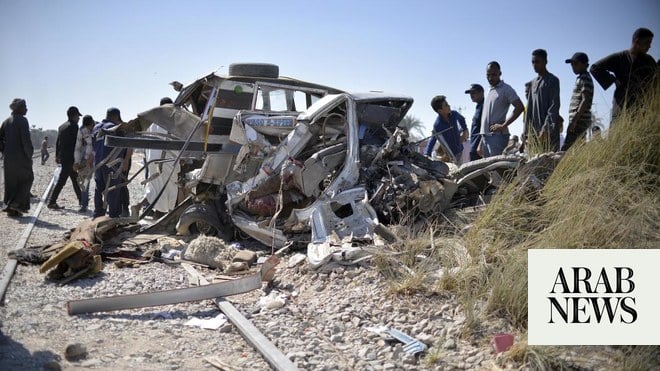
A tourist bus collided with a truck on a highway in southern Egypt and burst into flames on Wednesday, killing at least 10 people including four French and a Belgian, the Associated Press reported.
Along with the tourists, five Egyptians were killed in the crash.
The accident occurred early Wednesday morning when the bus collided with a car as it was transporting the tourists on the 300-kilometer road between Aswan and the famed Abu Simbel temple further south. The crash happened some 55 kilometers south of the ancient city of Luxor.
Fourteen others — eight French and six Belgians — were taken to hospital with “broken bones, bruises and superficial injuries” but all were in a stable condition, the Aswan governor said in a statement released by his office.
Many bodies were charred, and the injured suffered from burns, bruises and fractures, according to a health official who spoke on condition of anonymity because he was not authorized to brief the media.
Wednesday’s accident came five days after a bus crashed on a highway near the Red Sea, killing three including two Polish tourists.
Deadly traffic accidents claim thousands of lives every year in Egypt, which has a poor transportation safety record. The crashes and collisions are mostly caused by speeding, bad roads or poor enforcement of traffic laws.
Road accidents are relatively common in Egypt, where many roads are often in disrepair and traffic regulations sparsely applied. Some 7,000 people died in road accidents in the country in 2020, according to official figures.
Egypt’s official statistics agency says there were around 10,000 road accidents in 2019, the most recent year for which statistics are available, leaving over 3,480 dead. In 2018, there were 8,480 car accidents, causing over 3,080 deaths.
The Abu Simbel temple was moved in the 1960s from its original location under the administration of then-president Gamal Abdel Nasser to make way for the construction of the Aswan High Dam.
Egypt had begun reviving its vital tourism industry by promoting its ancient heritage, after the country’s 2011 revolution and ensuing unrest struck the sector.
But the arrival of the coronavirus pandemic in 2020 and the subsequent global travel bans resulted in a plunge in revenues from tourism, which employs some two million people out of the country’s 103-million strong population.
In August 2021, Russia resumed flights to Egyptian resorts six years after a Russian airliner crashed after taking off from Sharm el-Sheikh, killing all 224 people on board.
But Russia’s invasion of Ukraine has yet again cut off much of the influx of tourists to Egypt, as both countries accounted for about 40 percent of visitors to the country prior to the war. — Agencies










